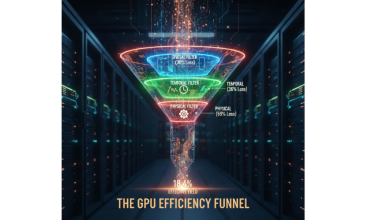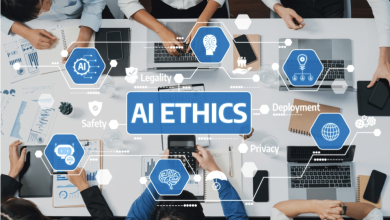
The global demand for and competition over capacity to support both AI and generative AI (GenAI) has resulted in a unique, hot labor market for talent, where we regularly hear about compensation packages in the nine-figure range for top researchers from the leading tech firms. While the competition for talent and the race for higher salaries make for interesting headlines, it is not an economically viable or complete frame of reference for many firms. In order to be competitive in the future, all employers, from legacy industry giants to high-growth start-ups, will need to embrace life that exists beyond the paycheck. Winning the battle for enterprise AI talent will have to embrace a skills first culture, an understanding and commitment to meaningful work, and thoughtful governance around ethics.
For example, a job boarding website in the hospitality industry provides a useful context to better understand the implications of this shift. The hospitality industry, which relies on human interaction, is currently weighing how to introduce AI for efficiency purposes without losing the human element. This tension exposes that the strategic issue is not a need for chopping human judgment to machine-done output capability, the strategic issue is a balanced employee that hugs the CEO’s and pure AI machine capabilities.
Prioritizing the Human Edge: Thinking and Adaptability
In a world where AI agents are becoming so advanced, the best employee will no longer just be the one that knows most about the most recent model, it will be the employee who can think independently of that model. The newer AI tools will become commoditized and interchangeable. The skills you think are useful today, may become obsolete in six months. If these truths are to be accepted, then it would be time for enterprises to reconsider their experiential approach to hiring.
The most relevant skill is that of critical assessment and judgment. As AI systems become embedded in core business processes, be it financial modeling, supply chain logistics, or other impactful uses, the human operator must ultimately be the final stop on quality control. Being able to recognize an algorithm’s deficiencies, encompassing the overall performance expectations and limitations, and when to go against the grain of the AI is paramount.
To truly identify and determine the strength of critical assessment, judgement, and independent intellectual reasoning, traditional interview processes are demonstrating inadequacies. Innovative organizations are starting to conduct “non – AI” skills assessments. Gartner has affirmed that 50% of global organizations will adopt “non – AI” assessments by 2026, due to atrophy of thinking skills from GenAI utilization. These assessments are intended to measure and consider a person’s ability to solve problems, evaluate evidence, and use independent reasoning when interfacing with all types of machine generated AI response output.
The Importance of Talent Development and Role Redesign
The concern that AI will just take away jobs is not correct. Rather, AI is resulting in a fundamental reimagining of work. Organizations that only deal with a reduction in headcount via automation will find themselves devoid of talent to manage and optimize the AI systems themselves. An all-encompassing talent strategy is based upon two core pillars: deliberate upskilling and proactive role redesign.
First, upskilling needs to move from a broad employee benefit to a focused effort that supports business goals. While the World Economic Forum predicts that 39% of core skills will change by 2030, many companies still lack clear reskilling plans. Such plans should link learning to productivity, mobility, and retention, so they create real business value. And as AI becomes central to work, all employees need basic AI literacy, while a smaller group should get deeper technical training to build and maintain AI systems.
The second factor is role redesign. Rather than eliminating entry level roles, organizations must actually redesign those roles to address higher value activities. AI should be responsible for the mundane, repetitive and transactional work that can be automated. This allows the human employee to directly address work that requires empathy, complex relationship building, and thought.
In hospitality, for example, AI is changing job seeking through automation of high volume administrative tasks. AI powered tools screen resumes, schedule interviews, and even draft an initial narrative about a candidate. This change does not eliminate the HR role, instead, it allows recruiters and the talent professionals in the sector to dedicate their time to interactions, personalized feedback and strategic talent mapping. The focus shifts from processing applications to ensuring a positive candidate experience, a key factor in attracting talent in a service focused industry.
Culture and Governance as the Ultimate Retention Tool
Although money can motivate workers for a short period of time, the best retention tools are meaning and trust. The best AI professionals tend to take jobs at companies when the work itself is challenging, meaningful, and has a transparent and ethical framework.
The integration of AI can create significant organizational tension. Studies have found that C-suite executives frequently report friction and siloed AI projects within their organizations so the solution lies in establishing a formal, company wide Responsible AI framework and making culture the new strategy.
This framework must include:
- Clear rules on data privacy, algorithmic bias, and social impact.
- Understanding of how AI systems make decisions.
- Ownership and responsibility for data quality and usage.
Companies that implement these formal governance structures report a much higher rate of workforce engagement and successful AI adoption. Talent sees this commitment to ethical deployment as a meaningful impact, which outweighs marginal salary increases. Furthermore, embedding AI within the core business strategy and not just treating it as an isolated IT project ensures that these professionals are working on the highest priority initiatives that bring noticeable value.
Consequently, the competition among companies for talented employees in the field of artificial intelligence will not be won by the company offering the highest salary. It will be won by the organizations that successfully create a culture where human judgment is amplified. By investing in their employees’ cognitive skills and future career paths, companies can build an artificial intelligence workforce over the next decade.




